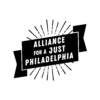
The Problem
- The Alliance for a Just Philadelphia opposes the chaos-centered, racialized, community-destroying militaristic failed enforcement of abstinence from drug use.
- This policy led directly to the 50% increase in overdose deaths among Philadelphians who use drugs in 2017, as well as to an increase of 50% in HIV incidence among Philadelphia injectors in the last 18 months.
Our Solutions
In its place Philadelphia City Council should work with:
- Harm Reduction: A philosophy that seeks to ameliorate the harms inherent to any human activity, and the strategies to accomplish that goal. Within the context of drug use, they focus on the biological/pharmacological effects of using a substance together with coping with the social and psychological harms inflicted by the systems around each substance.
- People who use drugs (instead of “addicts” or “junkies”): Emphasizes the humanity of drug users rather than focusing on demeaning epithets that elide the majority of users’ experiences. Talking about abuse without talking about non-problematic use denies an entire range of real experiences with substances. Abbreviated PWUD.
- SafeHouse: Overdose Prevention Sites or Safer Consumption Sites are harm reduction interventions that have a twenty-year history of implementation. Derived from users’ practice, OPSs address the societal stigma and health sequelae of drug use. In the context of the overdose epidemic, the salient outcome of the OPS intervention is that over more than two decades of data there have been zero deaths from overdose in any OPS. We strongly oppose the recent actions of the US Attorney for the Eastern District of Pennsylvania, who seeks to enforce bad law with zero consideration for the health effects that the city alone will have to deal with.
In Philadelphia, city entities have advocated for SafeHouse to protect users from harms around race, gender and other harm-maximizing sections of stigma. Research on an SCS at an unknown site in the USA (Kral and Davidson 2017) concludes that the only demonstrable primary benefit of that SCS was the prevention of ODs, whereas interventions like referrals to treatment and other social services were characterized as secondarily attested at most, due to the legal status of the site.
- Racial Justice: The genesis of the drug war is racist. As a group overpoliced as a result of this transgression, we reject using the tools of the racist drug war to right its racial wrongs. People of color are over-represented among the users who have died as a result of overdose. Current policies will obligate the city to spend over $32,000,000 in healthcare costs. If policy changes were to save that amount, reinvestment of that amount in affected communities would be a meaningful first step toward healing.
- Recovery: Any positive change, as defined by the person pursuing it. The presumption of an abstinence-based, 12-step approach to recovery exclusively is not supported by evidence and is a contributing factor to the both the overdose epidemic and the overwhelming imprisonment and probationary burden of the drug war borne by users and the city budget.
- Abstinence: In the context of substance use, maintenance of a state of full sobriety, an avoidance of either a specific intoxicant or all mind-affecting substances. All law enforcement methods to address substance use proceed from the assumption of/demand for abstinence. There is no clinical study of the effects of abstinence.
- Substance Use Treatment: An attempt by a substance user to address the effects of their use and the biopsychosocial context it occurs in. It can happen either voluntarily, because the user is ambiguous about or outright dissatisfied with their use and its effects, or by order of a law enforcement or social service entity. It is demonstrably more effective when not mandated.
Download Harm Reduction and Safe House Brief

